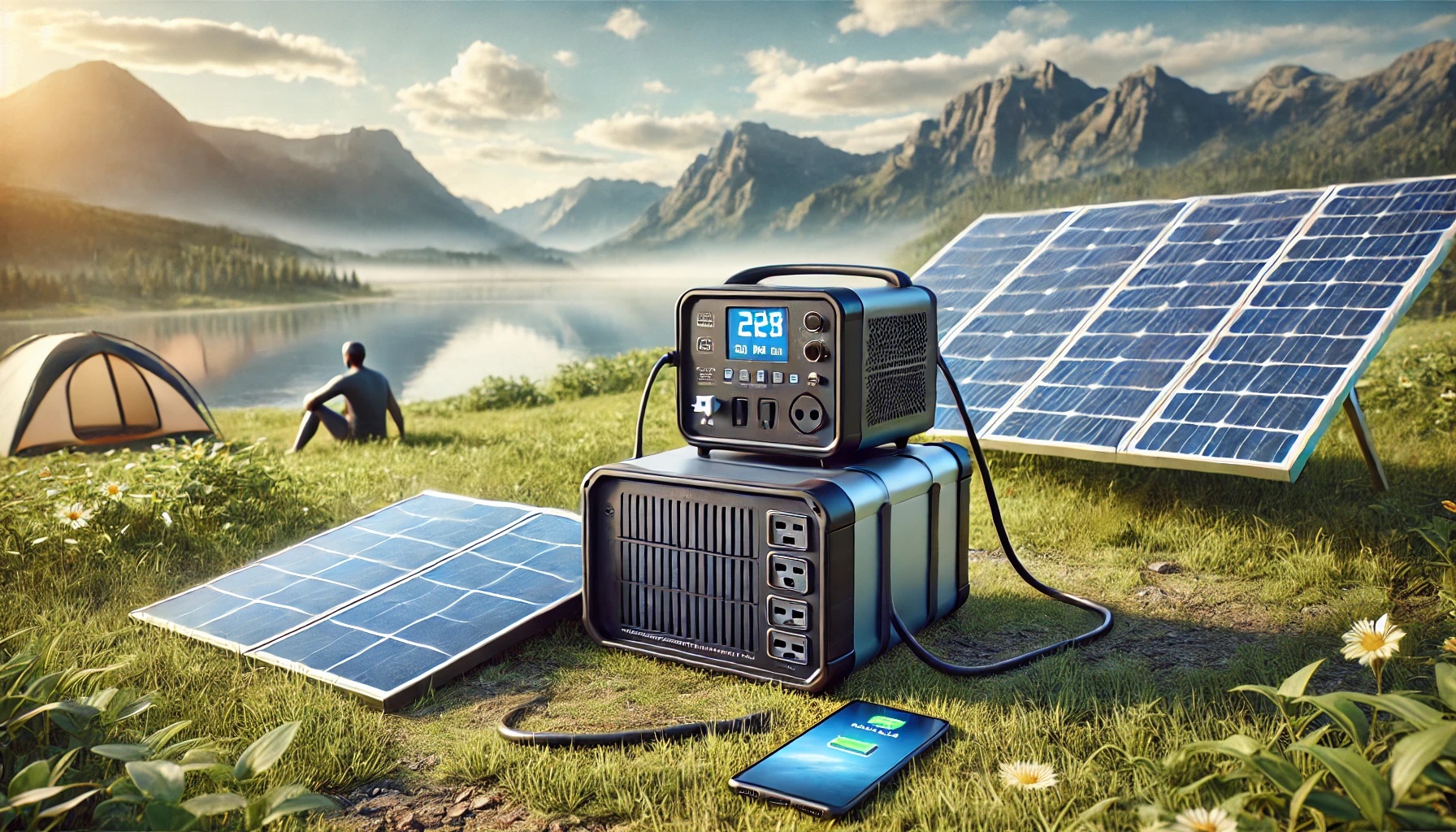





+86-13828714933

rome_jia@yabopower.com
How Portable Power Station Work and Change Modern Life
来源:
|
作者:Valarie
|
发布时间 :2024-12-09
|
24 次浏览:
|
Share:
In a world where energy independence and sustainability are gaining importance, portable power stations have emerged as a revolutionary solution for personal and professional use. These versatile devices, powered by cutting-edge Lithium-ion and LiFePO4 battery technology, offer reliable, efficient, and environmentally friendly energy solutions. Whether you're camping in the wilderness, working remotely, or preparing for an emergency, portable power stations ensure you stay connected and powered up. But how do they actually work?
How Portable Power Station Work and Change Modern Life?

In a world where energy independence and sustainability are gaining importance, portable power stations have emerged as a revolutionary solution for personal and professional use. These versatile devices, powered by cutting-edge Lithium-ion and LiFePO4 battery technology, offer reliable, efficient, and environmentally friendly energy solutions. Whether you're camping in the wilderness, working remotely, or preparing for an emergency, portable power stations ensure you stay connected and powered up. But how do they actually work?
At the core of every portable power station is a highly efficient energy storage system. The device stores electricity sourced from multiple inputs, such as traditional wall outlets, car chargers, or increasingly popular solar panels. Once the energy is stored, it can be used to power a wide range of devices by converting DC (direct current) energy into AC (alternating current) through an integrated inverter. This seamless conversion process enables users to charge smartphones, laptops, cameras, and even high-power appliances like refrigerators or medical devices.
Key Components of Portable Power Stations
1. Battery Technology:
Portable power stations primarily use advanced Lithium-ion batteries or more durable and safer LiFePO4 batteries. These batteries are lightweight, have high energy density, and provide a long lifecycle compared to traditional lead-acid batteries. LiFePO4 batteries, in particular, are known for their thermal stability and excellent safety profiles, making them a preferred choice for outdoor and emergency applications.
Portable power stations primarily use advanced Lithium-ion batteries or more durable and safer LiFePO4 batteries. These batteries are lightweight, have high energy density, and provide a long lifecycle compared to traditional lead-acid batteries. LiFePO4 batteries, in particular, are known for their thermal stability and excellent safety profiles, making them a preferred choice for outdoor and emergency applications.
2. Inverter and Power Outputs:
The inverter is the heart of a portable power station, converting stored DC power into AC power suitable for most electronic devices. With multiple output options, including USB, DC ports, and AC outlets, modern power stations cater to diverse needs, allowing simultaneous charging of multiple devices.
The inverter is the heart of a portable power station, converting stored DC power into AC power suitable for most electronic devices. With multiple output options, including USB, DC ports, and AC outlets, modern power stations cater to diverse needs, allowing simultaneous charging of multiple devices.
3. Smart Energy Management Systems:
Modern portable power stations integrate smart energy management systems to optimize battery performance. These systems enhance efficiency, monitor energy consumption, and provide overcharge and short-circuit protection, ensuring the device operates safely and reliably.
Modern portable power stations integrate smart energy management systems to optimize battery performance. These systems enhance efficiency, monitor energy consumption, and provide overcharge and short-circuit protection, ensuring the device operates safely and reliably.
4. Solar Charging Compatibility:
Many portable power stations are compatible with solar panels, offering a renewable energy option for outdoor enthusiasts and eco-conscious users. This integration makes them an environmentally friendly alternative to traditional fuel-powered generators.
Many portable power stations are compatible with solar panels, offering a renewable energy option for outdoor enthusiasts and eco-conscious users. This integration makes them an environmentally friendly alternative to traditional fuel-powered generators.
Applications and Benefits
Portable power stations are designed to meet the energy demands of a wide variety of users:
· Outdoor Enthusiasts: Perfect for camping, hiking, and photography trips, these devices ensure you can power lights, cameras, and GPS devices without relying on traditional electricity.
· Emergency Preparedness: During power outages or natural disasters, portable power stations provide a lifeline, powering critical medical equipment or keeping communication devices operational.
· Remote Work and Travel: With remote work on the rise, portable power stations offer flexibility and independence, allowing professionals to work from virtually anywhere.
Additionally, compared to traditional gas-powered generators, portable power stations are quiet, emission-free, and maintenance-friendly, aligning with sustainable living goals.
· Emergency Preparedness: During power outages or natural disasters, portable power stations provide a lifeline, powering critical medical equipment or keeping communication devices operational.
· Remote Work and Travel: With remote work on the rise, portable power stations offer flexibility and independence, allowing professionals to work from virtually anywhere.
Additionally, compared to traditional gas-powered generators, portable power stations are quiet, emission-free, and maintenance-friendly, aligning with sustainable living goals.
YABO Power: A Leader in Portable Power Solutions
As a pioneer in the development of LiFePO4 batteries and portable power stations, YABO Power is driving innovation in the energy sector. With over two decades of expertise, YABO Power focuses on delivering high-performance portable power stations that combine durability, efficiency, and smart technology. Their solutions are ideal for solar energy storage, household use, and outdoor activities, ensuring users can rely on a clean and uninterrupted power supply.
YABO Power's portable power stations also incorporate advanced solar energy solutions, enabling users to harness renewable energy for a greener future. By providing reliable and sustainable energy solutions, YABO Power empowers users to reduce their carbon footprint and embrace modern energy independence.
---author: Valarie

Shenzhen Yabo Power Technology Co., Ltd.
Quick Links
Product Categories
Contact us
rome_jia@yabopower.com
+86-13828714933
No.252 Pinglong East Road, Fenghuang Community, Pinghu Street, Longgang District, Shenzhen
© 2024 Shenzhen Yabo Power Technology Co., Ltd. All Rights Reserved. Designed by Erge







